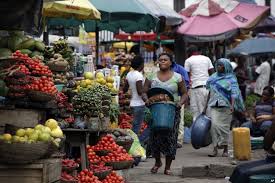The Lagos Chamber of Commerce and Industry has said the growing level of Nigeria’s debt is fast becoming unsustainable in the light of dwindling oil prices and production and might hit N34tn by year-end.
The President, LCCI, Toki Mabogunje, expressed concerns about the country’s rising debt portfolio at the institution’s Annual General Meeting held Tuesday in Lagos.

Quoting the Debt Management Office, Mabogunje said the public debt stock grew by eight per cent to N31tn at the end of the second quarter, equivalent to 21 per cent of the Gross Domestic Product.
According to her, the increase in public debt stock was fueled by fresh domestic and external borrowings required to plug the wider fiscal deficit in the revised 2020 budget given the impact of the COVID-19 pandemic and the impact of recent exchange rate depreciation.
“At the peak of the pandemic in the second quarter, the Federal Government received financial support worth $3.4bn and $288.5m from the International Monetary Fund and the African Development Bank respectively, while negotiations are also on-going for a cumulative $1.8bn credit support from the World Bank, AfDB and Islamic Development Bank,” Mabogunje stated.
She said adding these to prospective domestic issuances could possibly push the country’s public debt stock to around N34tn by year-end, equivalent to 23 per cent of the GDP.
The LCCI boss noted that the rising debt was fast becoming unsustainable which, according to her, was reinforced by the uptrend in debt-service to revenue ratio from 60 per cent by year-end 2019 to 72 per cent as of May 2020. “The high level of debt servicing continues to hinder robust investments in hard and soft infrastructures which are vital to stimulating productivity and improving living standards,” she said.

